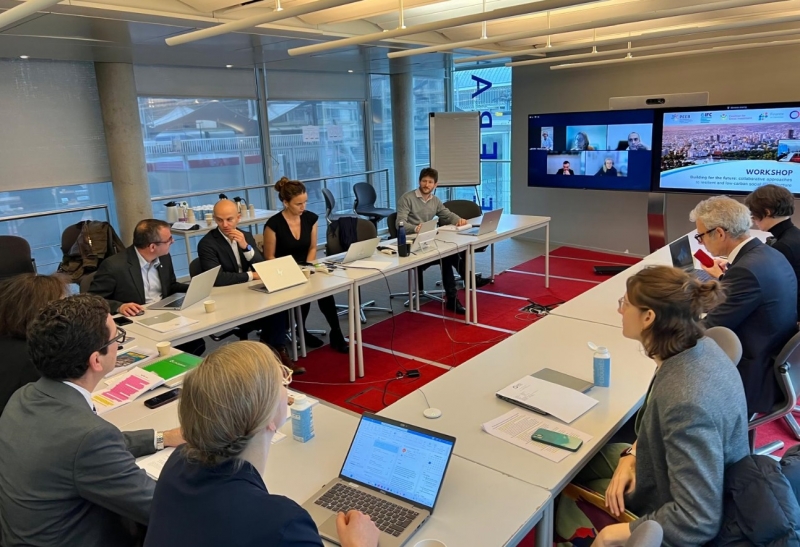Over 50 representatives from public development banks and the sustainable finance community gathered in Paris for a workshop to refine a new toolkit aimed at integrating energy efficiency into social infrastructure projects. This practical guide, set for release in February, builds on extensive collaboration through the Partnership for Energy Efficiency in Buildings (PEEB) and the Finance in Common Summit (FiCS) Coalition for Social Investment.
Energy efficiency in social infrastructure: why it matters
Social infrastructure—schools, hospitals, and public offices—is critical in ensuring essential services, especially during climate-induced disasters. These buildings account for up to 15% of urban energy use, with healthcare facilities consuming 2–3 times more energy per square meter than commercial spaces. However, many were built decades ago with inefficient systems, leading to high operational costs and energy wastage.
Urbanization is accelerating the demand for public infrastructure, amplifying energy challenges. Retrofitting these facilities can reduce energy use and costs significantly but often requires upfront investments and tailored financial products, which remain scarce.
Public Development Banks at the forefront
PDBs play a key role in addressing these challenges by leveraging blended finance approaches, mitigating risks for private investors, and catalyzing investments. Their focus on energy-efficient social infrastructure ensures that underserved communities benefit from cost savings, improved resilience, and enhanced comfort.
A practical toolkit for scaled action
The upcoming toolkit is a milestone in empowering PDBs to integrate energy efficiency and resilience into social infrastructure. It offers methodologies, tools, and case studies rooted in real-world experiences, helping development banks drive impactful change. By reducing energy costs and protecting users from heat stress and disasters, the toolkit aligns with the Buildings Breakthrough agenda and global climate goals.
This Paris workshop marks a critical step in finalizing the toolkit, underscoring the importance of collaboration in scaling solutions for a more sustainable future.
This toolkit is a key contribution to the agenda of the Buildings Breakthrough, an international initiative to accelerate climate action on buildings. This has been developed in close cooperation with the Global Alliance for Buildings and Construction, GlobalABC. This strategic partnership has played a strong role in the development of this toolkit.


 more
more